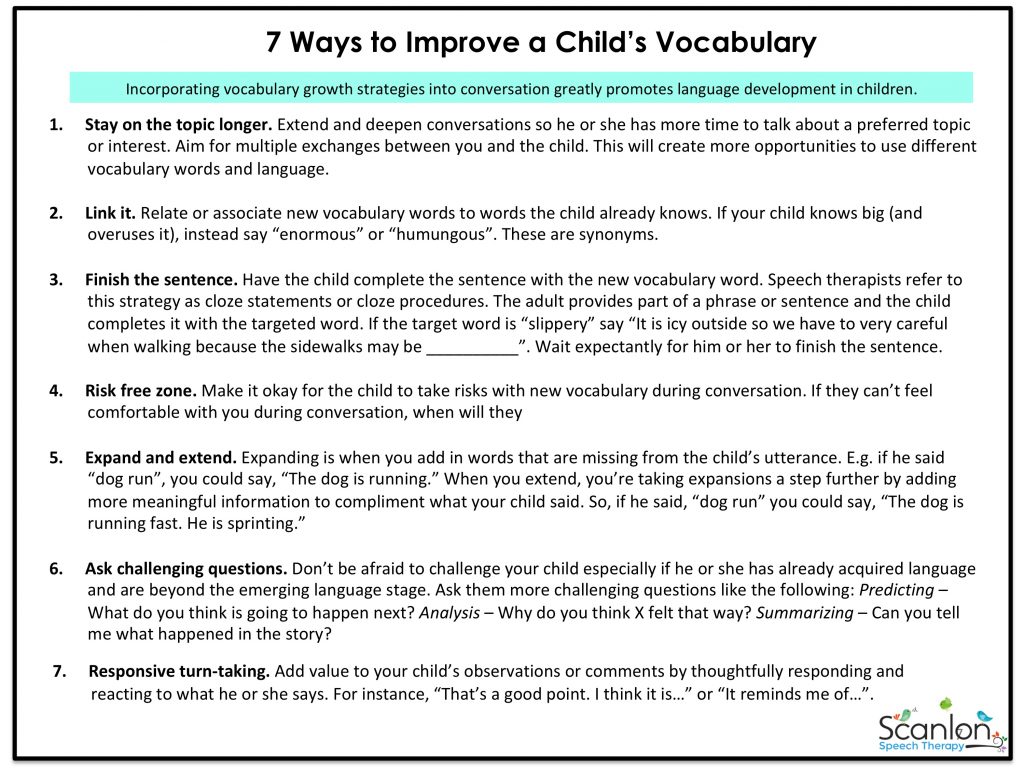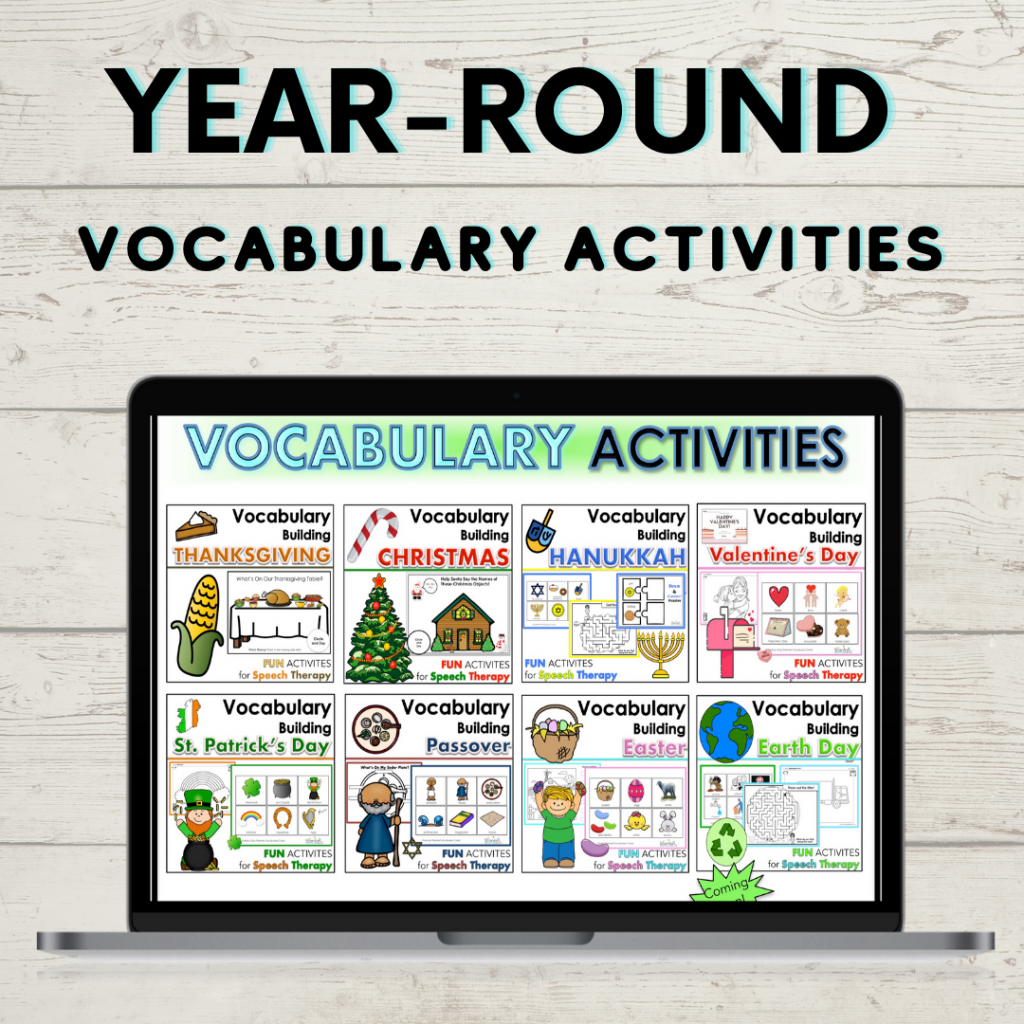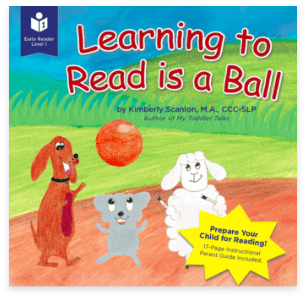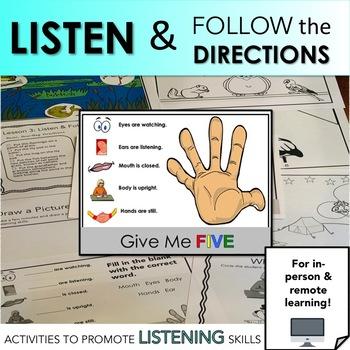Sign Up For Our E-Blast To Receive Information on our Books, Speech Therapy materials and our latest freebies!
7 Ways to Improve Your Preschooler’s Vocabulary through Conversation

7 Ways to Improve Your Preschooler’s Vocabulary through Conversation
Adults speak less to children whose oral language skills are under-developed. It’s the sad truth. Children who need language stimulation the most, get it the least.
If I shared a few tips to stimulate your preschooler’s language and it wouldn’t involve worksheets or flashcards, would you try ‘em?
I think you would.
Incorporating vocabulary growth strategies into conversation significantly promotes language development in young children. Some of these techniques may seem intuitive, so ask yourself two questions:
- Am I really using these techniques?
- Can I do it any better?
Here are 7 simple but effective ways to increase your child’s vocabulary through conversation:
7 conversational vocabulary growth strategies:
1. Stay on the topic longer. When your child initiates a topic and shows interest, stay on that topic and really get into it. Extend and deepen conversations so that he or she has more time to talk about the preferred subject matter or interest. Aim for multiple exchanges between you and your child.
2. Link it. Relate or associate new vocabulary words to familiar words. If your child knows big (and overuses it) try using the words enormous or humungous.
3. Finish the sentence. Have your child complete the sentence with the new vocabulary word. Speech therapists refer to this as cloze statements or cloze procedures (Yes, it’s with a z not an s). The adult provides part of a sentence, phrase, or utterance and the child completes it with the desired word. If the new vocabulary word is “moat”, you could say, “We’ve completed our sandcastle. We made a ________. ” Wait expectantly for him or her to finish the sentence. If needed, you can even give your child the first sound of the desired word.
4. Risk free zone. Make it okay for your child to take risks with new vocabulary during conversation. If he or she doesn’t feel comfortable with you during conversation who will he or she feel comfortable with? Encourage some word risk taking!
5. Expand and extend. I’ve written a detailed post on these techniques, please see it for specifics –Expansions and Extensions to Improve Your Child’s Language. Basically, when expanding – you add in words that are missing from your child’s phrases. For instance, if he said, “dog run”, you could say, “The dog is running.” Extensions take expansions a step further by adding more descriptive information to compliment what your child said. If he said, “The dog is running,” you could say, “The dog is running fast”.
6. Ask challenging questions. Don’t be afraid to challenge your preschooler – particularly if he or she has a delay or less developed vocabulary. If he or she has already acquired language and is beyond the emerging language stage, it’s a great time to ask more challenging questions like the following:
- Predicting – “What do you think is going to happen next?”
- Analysis – “Why do you think X felt that way?”
- Summarizing – “Can you tell me what happened in the story?”
7. Responsive turn-taking. Avoid saying “yeah”, “oh, or “mmm” to acknowledge your child’s comments. These filler phrases add little to the conversation. Add value to your child’s observations or comments by thoughtfully responding and reacting to what he says. If he says, “That’s a big house.” You could say,“ Yes, it’s humungous.” Or, “Yes, it’s a mansion.” See how you’re acknowledging your child’s comment and adding new information at the same time?
References:
Ruston, H.P., & Schwanenflugel, P.J. (2010). Effects of a Conversation Intervention on the Expressive Vocabulary Development of Prekindergarten Children. Language, Speech, and Hearing Services in Schools, (41), 303-313.
Rosinski-McClendon, M., & Newhoff, M. (1987). Conversational Responsiveness and Assertiveness in Language-Impaired Children. Language, Speech, and Hearing Services in School, (18), 53-62.
These 7 Strategies are available in my FREE EARLY LITERACY PACKET IN MY FREEBIE LIBRARY

- Enhance Your Speech Therapy Sessions with ‘Picky Kitty’ – A Must-Have Game for Every Speech Therapist
- Same and Different: Why Speech Therapists and Educators Should Target this Basic Concept
- New Beginnings for Scanlon Speech Therapy
- Articulation Speech Therapy: Favorite Activities, Games, and Books to Target the TH Sounds
- Articulation Speech Therapy: Favorite Activities, Games and Books to Target the L Sound



